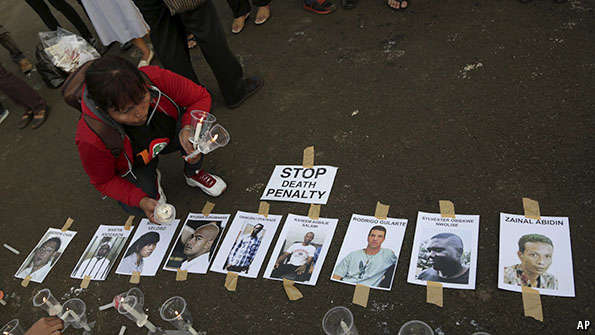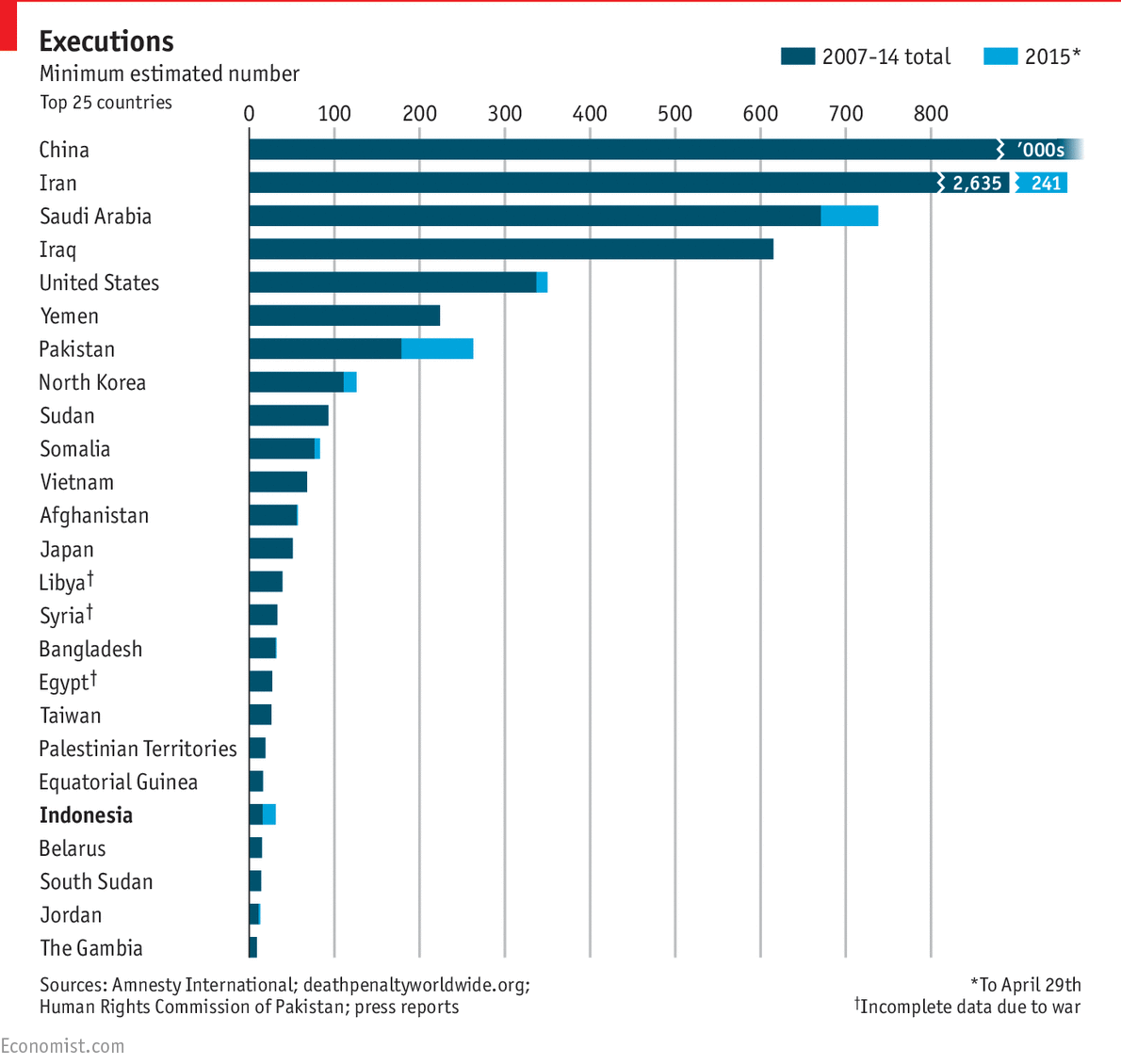Capital Punishment for convicted Drug Lords. Swift, Frightening and Painful Corporal Punishment for Drug Mules, because incarceration as a Deterrent is a huge impost upon the public purse and does not Deter drug dealing which ruins a lot of lives of tax payers
In certain countries illegal importing, exporting, sale, or possession of drugs constitute capital offences that may result in the death penalty. According to a 2011 article by the Lawyers Collective, an NGO in India, "32 countries impose Capital Punishment for offences involving narcotic drugs and psychotropic substances."[1] A 2012 report by Harm Reduction International "documents the 33 countries and territories that retain death penalty for drug offences, including 13 in which the sentence is mandatory."[2]
Only under certain conditions
Capital punishment for drug offenses
A 2009 CNN article lists penalties for drug-related crime in Asia by country.[3] Since then President Thein Sein of Myanmar commuted all of the country’s death sentences to life imprisonment in January 2014.[4] South Korea has the death penalty for drugs.[5] But South Korea has a de facto moratorium on the death penalty since it has not executed anybody since 1997, even though there are still people on death row, and even though new death sentences have been handed down in the last few years.[6]
A 2015 article by The Economist says 32 countries have the death penalty for drug smuggling, but only 6 really carry it out.[7]
Which countries have the death penalty for drug smuggling? - The Economist - Apr 29th 2015 by T.W.
Thirty-two, mainly in Asia and the Middle East—but only half a dozen really carry it out
-
How Sydney’s drug lords went global - SMH - Nick Ralston -
-
$500,000 a pop: the price you pay in organised crime - SMH - Nick Ralston
-
Drug deals, dirty money and links to Beijing: Australian police bring down Asia’s ‘Mr Big’ - Nick McKenzie, Chris Uhlmann and Joel Tozer - January 23, 2021


